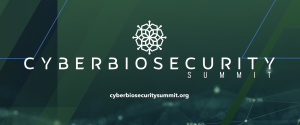
New Reports Call for Genomic Data Integrity and Genetic Data Categorization to Safeguard the Future of the Bioeconomy
New reports from Bioeconomy ISAC (isac.bio) focus on genomic data integrity and data categorization, highlighting gaps in current approaches to data security.
FAIRFAX, VA, UNITED STATES, February 7, 2025 /EINPresswire.com/ -- As the global bioeconomy expands, the need to safeguard genomic data has never been more urgent. Today, two new reports from the Bioeconomy Information Sharing and Analysis Center (BIO-ISAC) serve to address this need. Focused on genomic data integrity and genetic data categorization, the publications close gaps in data security approaches and call for action to strengthen protection of these data.
“Data security and sharing policies are increasing across the bioeconomy. Many of the common compliance frameworks, registries, and categorization guides are still broad or do not apply to the complex data types used in genomics.” said Scott Ross, Cyber Research Principal Investigator and Director of Information Technology at HudsonAlpha Institute for Biotechnology. “A data categorization guide for genomic data helps serve as a resource for organizations to apply in real-world use cases, labs, and data to safeguard DNA properly.”
“Critical risks are being overlooked in genetic security. Advanced security measures are often required, but the exact security controls needed depend on the type of data being generated, stored or used,” said Sterling Sawaya, Founder and Chief Executive Officer of GeneInfoSec, Inc. “Categorizing genetic data by sensitivity enables targeted security controls and is the first step toward appropriate genetic security.”
Genomic data holds immense potential for science breakthroughs, biotechnology innovation, and national security. However, its misuse or compromise poses serious risks, from privacy violations to biosecurity threats. These reports provide a roadmap for strengthening protections, ensuring that genetic data remain safe, trustworthy, and securely managed.
“Our genetic information is as personal as it gets—and as valuable as it is vulnerable,” said Whitney Zatzkin, Director of BIO-ISAC. “Without strong safeguards, we risk exposing individuals, institutions, and even entire subpopulations to unprecedented security concerns. These reports lay the groundwork for a more secure future by advancing our defense strategies.”
Details on these tools and approaches will be presented at the upcoming Cyberbiosecurity Summit, cyberbiosecuritysummit.org, hosted in partnership with the Johns Hopkins University Applied Physics Laboratory. For more information or to access the full reports, visit isac.bio/genomicdata.
ABOUT the Bioeconomy Information Sharing and Analysis Center
BIO-ISAC (isac.bio), a non-profit organization, addresses threats unique to the bioeconomy and enables coordination among stakeholders to facilitate a safe, secure industry. BIO-ISAC provides two-way sharing of information between and among public and private partners serving as the central resource for gathering information on threats impacting the bioeconomy, helping spur the development and evaluation of defensive tools to address these issues.
Press Office
Bioeconomy Information Sharing and Analysis Center
press@isac.bio
Visit us on social media:
LinkedIn
Distribution channels: Agriculture, Farming & Forestry Industry, Energy Industry, Healthcare & Pharmaceuticals Industry, IT Industry, U.S. Politics
Legal Disclaimer:
EIN Presswire provides this news content "as is" without warranty of any kind. We do not accept any responsibility or liability for the accuracy, content, images, videos, licenses, completeness, legality, or reliability of the information contained in this article. If you have any complaints or copyright issues related to this article, kindly contact the author above.
Submit your press release

